 W
WCharles W. Adams (1834–1909) was an officer in the Union Army during the American Civil War. He entered the Union Army in 1862 as a Colonel and was given command of the 12th Kansas Volunteer Infantry. He led his unit at the Battle of Jenkins' Ferry where he received a gunshot wound in his arm. He mustered out of Union service in 1865 as a Brevet Brigadier General and returned to Lawrence, Kansas.
 W
WDaniel Read Anthony was an American publisher, women’s suffragist, and abolitionist. He moved to Kansas, where he published the Leavenworth Times in Leavenworth, Kansas, as well as other newspapers in the area. He was a leader of the New England Emigrant Aid Company. He was a younger brother of activist Susan B. Anthony.
 W
WJames Gillpatrick Blunt was a physician and abolitionist who rose to the rank of major general in the Union Army during the American Civil War. He was defeated by Quantrill's Raiders at the Battle of Baxter Springs in Kansas in 1863, but is considered to have served well the next year as a division commander during Price's Raid in Missouri.
 W
WAugust Bondi was an Austrian-American Jew involved in the Border War and later the American Civil War. In Kansas, he was a part of the Pottawatomie Rifles and fought alongside abolitionists John Brown and James Lane.
 W
WThomas Mead Bowen was a state legislator in Iowa and Colorado, a Union Army officer during the American Civil War, a justice of the Arkansas Supreme Court, briefly the Governor of Idaho Territory, an elected judge in Colorado and a United States Senator from Colorado.
 W
WCase Broderick was a politician and U.S. Representative from Kansas. He was a cousin of David Colbreth Broderick, of Washington, DC; New York, and California; and Andrew Kennedy of California, who also became national politicians.
 W
WNapoleon Bonaparte Brown ,businessman, politician, and resident of Kansas and Missouri in the late 19th and early 20th centuries. He is most known as the namesake and builder of the Brown Grand Theatre in Concordia, Kansas, a majestic opera house completed in 1907 and listed on the National Register of Historic Places. The theatre has been called "the most elegant theater between Kansas City and Denver."
 W
WWilliam W. Chisman (1843–1925) was a Union Army soldier during the American Civil War who received the Medal of Honor for gallantry during the Siege of Vicksburg on May 22, 1863.
 W
WPowell Foulk Clayton was an American politician, diplomat, and businessman who served as the 9th governor of Arkansas from 1868 to 1871, as a Republican member of the U.S. Senate for Arkansas from 1871 to 1877 and as U.S. Ambassador to Mexico from 1897 to 1905.
 W
WWilliam F. Cloud was an officer in the Union Army during the American Civil War who participated in many battles in the Trans-Mississippi Theater.
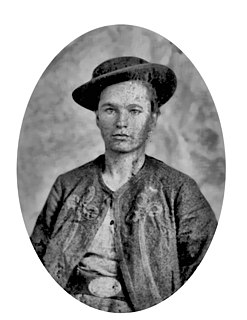 W
WJames Smith Cunningham was a Union Army soldier during the American Civil War. He received the Medal of Honor for gallantry during the Siege of Vicksburg on May 22, 1863.
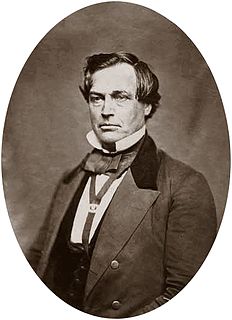 W
WJames William "Jim" Denver was an American politician, soldier and lawyer. He served in the California state government, as an officer in the United States Army in two wars, and as a Democratic member of the United States House of Representatives from California. He served as secretary and Governor of the Kansas Territory during the struggle over whether or not Kansas would be open to slavery. The city of Denver, Colorado, is named after him.
 W
WGeorge Washington Deitzler was a Union Army General during the American Civil War. He was also known as the mayor of Lawrence, Kansas in 1860 and served as Treasurer of The University of Kansas after. Deitzler was a prominent member of The Free State Party in Kansas and after the war, the Republican Party.
 W
WJohn N. Eckes was a Union Army soldier during the American Civil War. He received the Medal of Honor for gallantry during the Siege of Vicksburg on May 22, 1863.
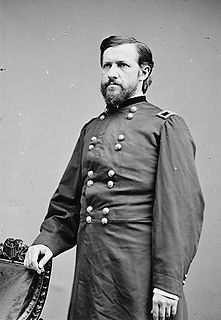 W
WThomas Ewing Jr. was an attorney, the first chief justice of Kansas and leading free state advocate, Union Army general during the American Civil War, and two-term United States Congressman from Ohio, 1877–1881. He narrowly lost the 1880 campaign for Ohio Governor.
 W
WBenjamin Joseph Franklin was a U.S. Representative from Missouri, and territorial governor of Arizona.
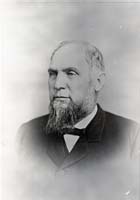 W
WGeorge Washington Glick was the ninth Governor of Kansas.
 W
WCharles Burleigh Graves was a Justice of the Kansas Supreme Court from August 21, 1905, to January 9, 1911.
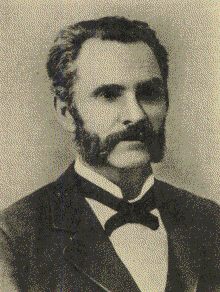 W
WNehemiah Green was the fourth Governor of Kansas, serving in that position on an interim basis from November 1868 to January 1869. He subsequently served as Speaker pro Tempore of the Kansas House of Representatives.
 W
WDudley Chase Haskell was an American merchant, Civil War veteran, and Republican Party politician from the Lawrence, Kansas area. He first served several terms in the Kansas House of Representatives, where he was elected as Speaker in 1876. That year he was elected to Congress, and served several terms until his death in office in 1883.
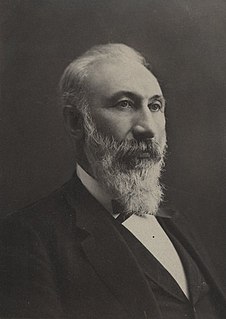 W
WJohn Gideon Haskell was an architect who designed portions of the Kansas State Capitol and other public buildings in the state.
 W
WDavid H. Helms was a Union Army soldier during the American Civil War. He received the Medal of Honor for gallantry during the Siege of Vicksburg on May 22, 1863.
 W
WJohn James Ingalls was an American Republican politician who served as a United States senator from Kansas. Ingalls is credited with suggesting the state motto and designing the state seal.
 W
WWilliam F. John was a Union Army soldier during the American Civil War. He received the Medal of Honor for gallantry during the Siege of Vicksburg on May 22, 1863.
 W
WSamuel Jefferson Jones was a pro-slavery settler who held the position of Douglas County sheriff in Kansas Territory from late 1855 until early 1857. He helped found the territorial capital of Lecompton and played a prominent role in the "Bleeding Kansas" conflict.
 W
WJames Henry Lane was a partisan militia leader during the Bleeding Kansas period that immediately preceded the American Civil War. During the war itself, Lane served as a United States Senator and as a general for the Union. Although reelected as a Senator in 1865, Lane committed suicide the next year.
 W
WAlbert Lindley Lee was a lawyer, Kansas State Supreme Court Judge, and Union general in the American Civil War.
 W
WCyrus Leland Sr. was a lawyer from Sauk City, Wisconsin and Troy, Kansas who served a single one-year term in the Wisconsin State Assembly representing Sauk County as a Democrat; and served as a colonel in the Union Army during the American Civil War.
 W
WDavid Martin was a Chief Justice of the Kansas Supreme Court from April 30, 1895, to January 11, 1897.
 W
WJohn Alexander Martin was the 10th Governor of Kansas.
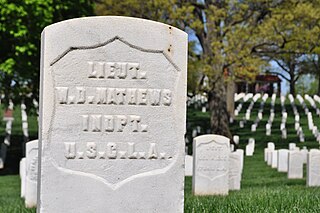 W
WWilliam Dominick Matthews was an African American abolitionist, Civil War Union officer and Freemason. He was leader in Leavenworth, Kansas as well as nationally.
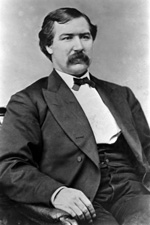 W
WAlexander McDonald was a Republican politician who represented Arkansas in the United States Senate during the Reconstruction years from 1868 to 1871.
 W
WRobert Byington Mitchell was a brigadier general in the Union Army during the American Civil War and the Governor of the New Mexico Territory from 1866 to 1869.
 W
WJames Montgomery was a Jayhawker during the Bleeding Kansas era and a controversial Union colonel during the American Civil War. Montgomery was a staunch supporter of abolitionist principles and individual liberty and used extreme measures against pro-slavery populations.
 W
WThomas Moonlight was a United States politician and soldier. Moonlight served as Governor of Wyoming Territory from 1887 to 1889.
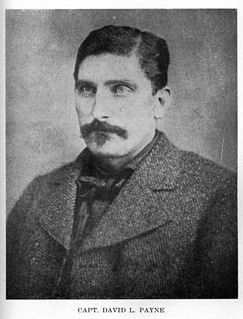 W
WDavid Lewis Payne was an American soldier and pioneer. Payne is considered by some to be the "Father of Oklahoma" for his work in opening the state to settlement.
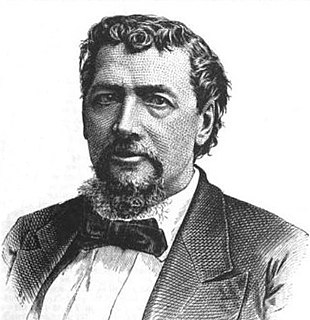 W
WWilliam Addison Phillips was a journalist, soldier and U.S. Representative from Kansas.
 W
WPreston Bierce Plumb was a United States Senator from Kansas, as well as an officer in the Union Army during the American Civil War.
 W
WSamuel Clarke Pomeroy was a United States senator from Kansas in the mid-19th century. He served in the United States Senate during the American Civil War. Pomeroy also served in the Massachusetts House of Representatives. A Republican, he also was the mayor of Atchison, Kansas, from 1858 to 1859, the second president of the Atchison, Topeka and Santa Fe Railroad, and the first president to oversee any of the railroad's construction and operations. Pomeroy succeeded Cyrus K. Holliday as president of the railroad on January 13, 1864.
 W
WCaleb S. Pratt was a primary person involved in Bleeding Kansas. He testified before the Committee of Elections regarding the Troubles in Kansas, 1856 specific to voting irregularities in the Election of March 30, 1855 Lawrence, Kansas.
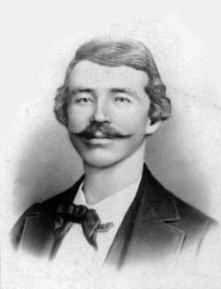 W
WWilliam Clarke Quantrill was a Confederate guerrilla leader during the American Civil War.
 W
WSamuel J. Reader (1836–1914) was an American diarist and artist who wrote about his experiences living in Bleeding Kansas and the American Civil War.
 W
WEdmund Gibson Ross was a politician who represented Kansas after the American Civil War and was later governor of the New Mexico Territory. His vote against convicting President Andrew Johnson of "high crimes and misdemeanors" allowed Johnson to stay in office by the margin of one vote. As the seventh of seven Republican U.S. Senators to break with his party, he proved to be the person whose decision would result in conviction or acquittal. When he chose the latter, the vote of 35–19 in favor of Johnson's conviction failed to reach the required two-thirds vote. Ross lost his bid for re-election two years later.
 W
WConrad Schmidt was a Union Army soldier during the American Civil War. He received the Medal of Honor for gallantry during the Battle of Opequon more commonly called the Third Battle of Winchester, Virginia on September 19, 1864.
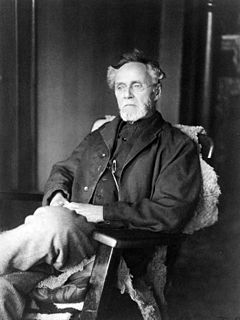 W
WAndrew Taylor Still, DO was the founder of osteopathy and osteopathic medicine. He was also a physician and surgeon, author, inventor and Kansas territorial and state legislator. He was one of the founders of Baker University, the oldest four-year college in the state of Kansas, and was the founder of the American School of Osteopathy, the world's first osteopathic medical school, in Kirksville, Missouri.
 W
WElias Sleeper Stover was an American businessman, politician, and university president.
 W
WWilliam Sloan Tough aka "Captain Tough", "Tufts" or "Tuff" was a member of the guerrilla or irregular forces called the Kansas Red Legs. The Kansas Red Legs fought on the Kansas-Missouri Border during the American Civil War in support of the Union.
 W
WAbel Carter Wilder was a U.S. Representative from Kansas.
 W
WDavid John Mosher Wood was an American Indian agent and Methodist minister.
 W
WSamuel Newitt Wood was an American attorney, politician, and Free State advocate in Kansas.
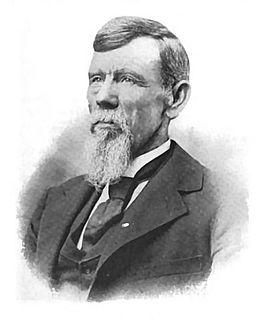 W
WStephen Mosher Wood was an American politician. Mr. Wood represented Chase County, Kansas in the Kansas House of Representatives in 1871 and 1875, and was a member of the Kansas Senate in 1876 after replacing S. R. Peters who resigned.
 W
WJoseph Wortick was a Union Army soldier during the American Civil War. He received the Medal of Honor for gallantry during the Siege of Vicksburg on May 22, 1863. Variant spellings of the surname are Wartick and Wertick.